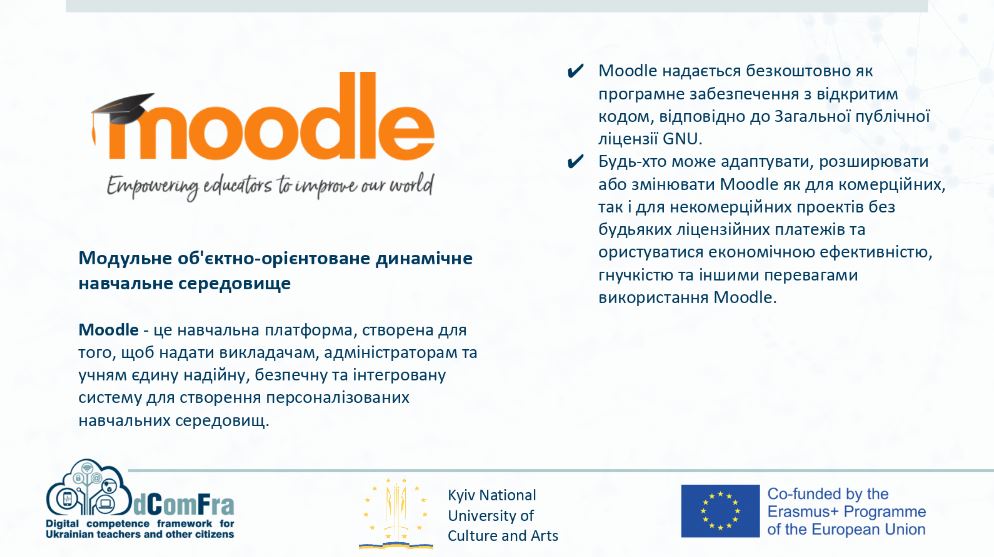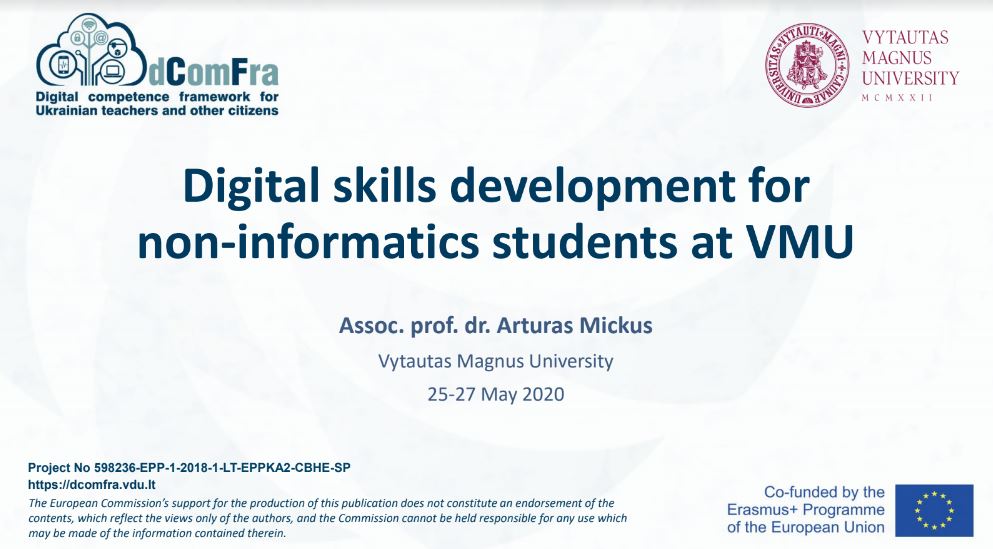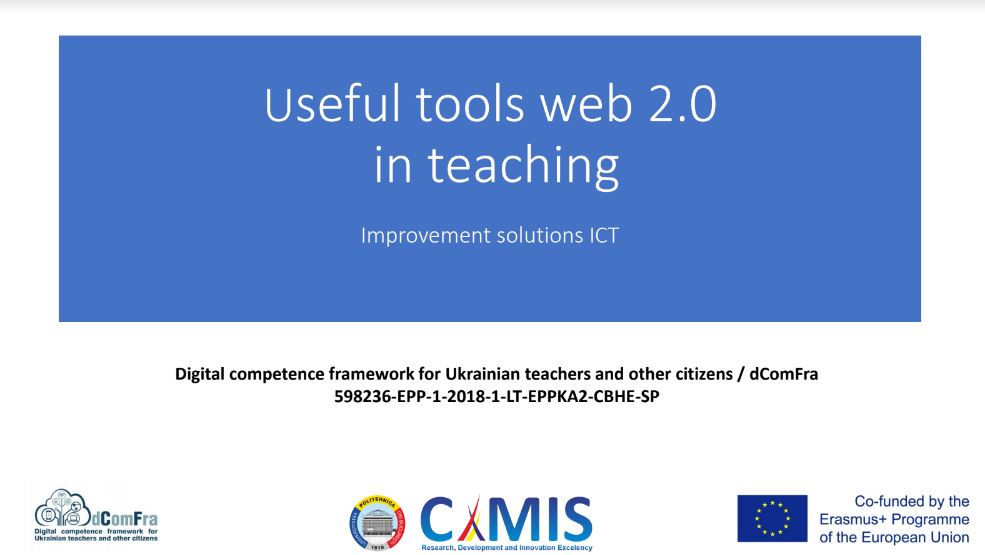20/06/2020
The objectives of the KA2 №598236-EPP-1-2018-1-LT-EPPKA2-CBHE-SP project “Digital competence framework for Ukrainian teachers and other citizens” (dComFra) of the European Union Erasmus + provided dissemination of best practices in reforming the professional training of teachers, as well as the use of digital knowledge and skills in the work of teachers, everyday life and professional activities of citizens of Ukraine. In the project, participants have the opportunity to participate in trainings during which leading experts from European partner universities share their experience in the use of modern information technology in the organization of the educational process.
Due to quarantine measures, regular training was held on May 25-27, 2020 by video conference. The purpose of the online training was to prepare trainers for teaching in the Digital Competences Offices, a network of which was created within the dComFra project on the basis of Ukrainian partner universities. The faculties of Ukrainian universities were presented with developments in the acquisition of digital skills by students of European universities and the use of modern information technology in the educational process. Professors from Vytautas Magnus University (Kaunas, Lithuania), Czech University of Life Sciences (Prague, Czech Republic), Carinthian University of Applied Science (Villach, Austria), Polytechnic University of Bucharest (Bucharest, Romania), Pedagogical University of Cracow (Krakow, Poland), Public Institution Information Technologies Institute (Kaunas, Lithuania).
O. Chaikovskа, M. Tolmach, K. Kotsiubivska, I. Borodkina, and Yu. Lebid took part in the training from KNUKiM. Materials on the formation and development of digital skills for students of non-technical specialties, media literacy training were presented to teachers. Foreign colleagues shared their experience in organizing distance learning, creating online laboratories, automating knowledge assessment, using interactive approaches to learning, organizing group projects through the interactive online cooperation.
The next stage in the process of training future trainers of the Digital Competences Offices was a series of internal trainings in each of the 7 Ukrainian universities participating in the consortium. The internal training at KNUKiM took place on June 10-12, 2020, and involved participants from the Department of Computer Science, the Department of Graphic Design, the Department of Event Management, the Department of Musical Art. One of the tasks was to adapt the knowledge and skills acquired during the online training to the specifics of organizing training for creative specialties and institutions of higher education in the field of culture in general and the dissemination and use of European experience in developing digital competencies in training professionals.
Olena Chaikovska spoke about the problems of digitalization of education, the structure of digital competence of teachers, and the activities of the National Digital Coalition in Ukraine. Maryna Tolmach, a member of the working group of the dComFra project, conducted trainings on the organization of digital learning, the use of Web 2.0 tools, the organization of interactive learning in the Moodle system. Kateryna Kotsiubivska, Associate Professor of the Department of Computer Science, spoke about the creation of online laboratories, the use of BYOD learning technology, the use of virtualization technologies and augmented reality in education. Interesting tools of digital learning for students of creative specialties, in particular music art, were presented by the senior lecturer of the Faculty of Music Art Yuliia Lebid. Associate Professor of Computer Science Iryna. Borodkina spoke about the assessment of knowledge and international certification of ICDL, as well as the use of TestEngine and the experience of creating training courses in the Moodle platform.
The head of the KNUKiM working group of the project “Digital competence framework for Ukrainian teachers and other citizens” Olena Chaikovska noted that the training revealed to educators the possibilities of modern information technologies and pointed out ways to use them in the educational process.



















